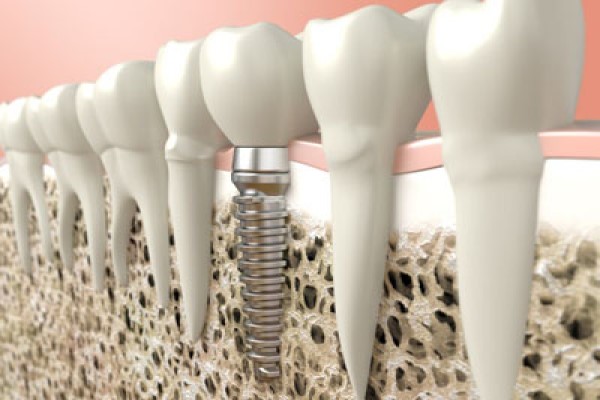The Recovery Process after a Dental Bone Graft

A bone graft may be performed if a person needs restorative dentistry, such as a dental implant, but the jaw bone does not have enough density to support the procedure. This grafting process often uses bone from another place in the body. The bone material may also be made from naturally occurring minerals, such as calcium carbonate or hydroxyapatite, or from synthetic materials.
Because this is a surgical procedure, there is a significant recovery process that the patient goes through. The total healing time is around six months, although most patients can return to normal daily activities before that point.
Recovery process
The specifics of recovery after a bone graft vary depending on the severity of the surgery. However, there are basic steps that patients should follow.
Day of surgery
Due to the invasiveness of the surgery, there is often some discomfort or pain immediately after the surgery. Oral surgeons often prescribe pain medication to manage it.
Swelling is common after the surgery. This often occurs not only around the surgical site but also around the cheeks, side of the face, and eyes. Swelling typically peaks on the third day and then begins to subside. Placing an ice pack at the site for 20-minute intervals helps manage the swelling and discomfort. After 48 hours, warm, moist heat should be used instead of ice.
Bleeding is also common. The oral surgeon places bandages over the site after the surgery, and these need to be changed often. For active bleeding, patients can fold a tea bag or damp gauze and place it over the area, biting down continuously for around 20 minutes. The saliva may have traces of blood in it for around a week, but if there is continual active bleeding, the dental professional should be called.
Medication
Along with pain medication, the oral surgeon may prescribe antibiotics. These help prevent infection, which is a common complication. Patients should make sure to take all of the antibiotics prescribed, even if they are feeling better.
Diet restrictions
Due to the tenderness of the surgical site, patients should only consume liquids and soft foods for up to the first few weeks after the procedure. Examples include soup, mashed potatoes, pudding, and flaky fish. Dairy products should be avoided, as the bacteria can harm the surgical site. Patients can return to eating a normal diet once solid food is tolerated, which varies for each patient.
Oral hygiene
It is important to keep the mouth clean after the bone graft procedure, but oral care takes special steps to avoid messing up the surgical areas. Gentle brushing is recommended, although the procedure sites should be avoided until they are healed. The dentist may also recommend a non-alcoholic rinse or warm salt water. Vigorous rinsing and spitting should be avoided for the first five days or so.
Conclusion
Patients who get a bone graft to build up density in the jaws should prepare for some discomfort during the initial course of healing. Following proper recovery steps helps manage this process.
Request an appointment here: https://www.drelloway.com or call Randal S. Elloway DDS, Inc at (530) 527-6777 for an appointment in our Red Bluff office.
Check out what others are saying about our dental services on Yelp: Will I Need a Bone Graft for Dental Implants in Red Bluff, CA.
Related Posts
There are a few reasons you may consider getting a dental bone graft. If you had severe periodontal disease, then you may have lost some bone density in your jawbone. You may also consider a dental bone graft to increase the bone density in your jawbone to prepare your jaw for dental implants. Regardless of…
A dentist will recommend a dental bone graft to replace the bone loss in the jaw if they believe the patient does not have enough bone density to support a dental implant. Bone grafting is also used if surgical procedures like a sinus or a ridge augmentation require bone growth.A dental bone graft is not…
There are numerous reasons why dental professionals recommend wisdom teeth extraction, and one is to prevent teeth misalignment. Wisdom teeth are the third molars located in the lower and upper parts of the jaw, behind the other molars on both sides. The teeth generally appear years after the other permanent teeth have come up. In…
If your wisdom teeth have begun to emerge, it is time to speak to your dentist. When these teeth are impacted, they can have some serious effects on your oral health. It is important for you to understand the risks these teeth pose and the steps you should take. Your dentist can walk you through…


